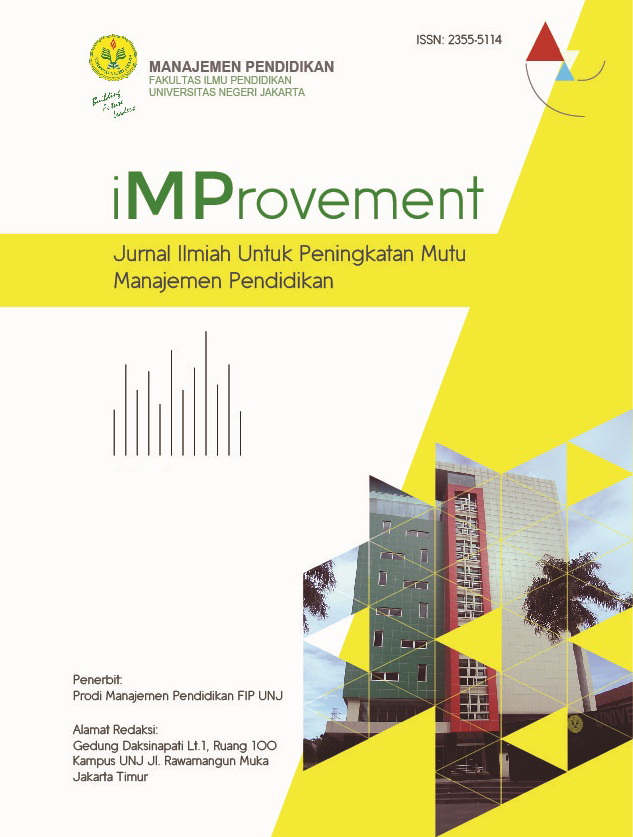Evaluation of Special Purpose English Programs with the CIPP Approach
DOI:
https://doi.org/10.21009/improvement.v9i1.27791Keywords:
Language Program Evaluation, CIPP, ESPAbstract
Abstract: English for Special Purposes (BIK) is English language teaching specifically designed to meet the needs of learners in an English language learning program so that they can communicate in a particular context. The qualitative study seeks to answer the research question “How far has the English Program for Special Purposes for Secretaries and Administrative Strengths been successful in meeting the English language development needs and the English learning needs of students?” by using the CIPP component in the evaluation model approach advocated by Stufflebeam. The CIPPs component is used as a guide for planning, implementation and evaluation of the ESP program through theoretical-based criteria derived from the researchers’ understanding of language learning programmes. (Kiely dan Rea-Dickins, 2005). Data collection was carried out on ten participants, two teachers and one program developer through interview techniques. The evaluation results showed that the BIK program has successfully met the language skills development needs and the English learning needs of the students. The biggest challenge in the implementation of the BIK program is to reduce the difficulty of participants in learning English without explicitly incorporating language structural elements. In addition, these evaluations also produce systematic guidelines that can be used to evaluate English for Special Purposes programmes at other program providers or can also be used in the evaluation of teaching programmes in other fields of study.
Downloads
Published
How to Cite
Issue
Section
License
Copyright (c) 2022 Nurhasanah Halim, Muchlas Suseno, Syamsi Setiadi

This work is licensed under a Creative Commons Attribution-NonCommercial-ShareAlike 4.0 International License.
Authors who publish with this Journal agree to the following terms:
- Author retain copyright and grant the journal right of first publication with the work simultaneously licensed under a creative commons attribution licensethat allow others to share the work within an acknowledgement of the work’s authorship and initial publication of this journal.
- Authors are able to enter into separate, additional contractual arrangementfor the non-exclusive distribution of the journal’s published version of the work (e.g. acknowledgement of its initial publication in this journal).
- Authors are permitted and encouraged to post their work online(e.g. in institutional repositories or on their websites) prior to and during the submission process, as it can lead to productive exchanges, as well as earlier and greater citation of published works.
-
Users/public use of this website will be licensed to CC BY-NC-SA (Attribution & Non-Commercial-ShareAlike)



